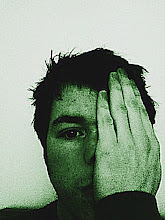
Tim Phillips book, 'Beslan: The Tragedy of School No.1' was published in 2007, and is very in depth telling of the siege that happened during 3 days in September 2004. All I knew about this before reading was what I remember from the news 5 years ago, and little snippets I'd read in the following years. Needless to say, what I knew was only the tip of the iceberg, so to speak. This book was utterly horrifying from start to finish.
Well, I lie. The first chapter, entitled 'The Happiest Day of My Year' was actually very enjoyable. This led, however, to the second chapter, 'Start Digging Your Own Graves'. It got more and more harrowing from there on. On September 1st, 2004, the children of Beslan were enjoying the start of the school year, the Day of Knowledge as it is known in Russia. Without warning, the school was attacked by a group of men from Chechnya and Ingushetia, 2 neighbouring regions in the North Caucasus. What followed was 3 days of what can only be described as sheer hell, before the siege reached a tragic climax in which it is believed 334 people died, 188 of whom were children.
The book isn't however just a chronological reporting of the events of the siege. Bedded in between chapters about the goings on at School No. 1 are chapters dedicated to educating the reader about the politics, history and people of the North Caucasus. For those who aren't aware, the North Caucasus includes several republics in the South West of Russia and many regions of Georgia and Azerbaijan. One of the Russian Republics in this area is Chechnya, which I'm almost certain everyone has heard of in some way or another. The travails and disputes between Chechnya and Moscow are far too large to go into here, but I imagine a book on that subject will be read soon. Let's just say its a bit spicy.
One of the best aspects of the book is Phillips' interviews with survivors of the siege, and their mentality regarding it. It really is a very interesting look into the mindset of people in the north caucasus, as well as a valuable evidential insight into what happened. Whilst the majority of their recollections are incredibly hard to read, they are still a vital part of the book. Phillips also manages to cover the events in a very sensitive manner, never coming across as a charitable westerner. It's this sensitivity that helps to truly ram home what happened.
For anyone interested in the North Caucasus I recommend this book whole heartedly. It isn't a pleasant read at all, but that was to be expected.

No comments:
Post a Comment